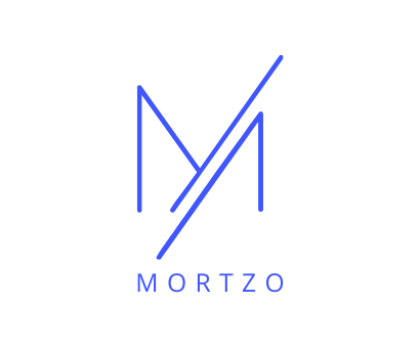Interest Only Mortgages: A Flexible Financing Option or a Financial Trap?

Interest-only mortgages have long been marketed as a flexible financing option, offering borrowers lower monthly payments by allowing them to pay only the interest for a set period. While this may sound appealing, especially to first-time homebuyers or investors, these loans come with significant risks that need careful consideration. This blog explores the structure, benefits, and potential pitfalls of interest-only mortgages to help you determine whether they are a smart financial move or a potential trap.
What is an Interest-Only Mortgage?
An interest-only mortgage is a type of home loan where the borrower only pays the interest for a designated period, typically the first 5, 7, or 10 years of the loan. During this time, the principal amount—the original loan balance—remains untouched. After the interest-only period ends, the borrower must begin making payments that include both principal and interest, which often results in a significant increase in monthly payments.
Benefits of Interest-Only Mortgages
- Lower Initial Monthly Payments
The most attractive feature of an interest-only mortgage is the lower monthly payment during the interest-only period. Since you’re not paying down the principal, your monthly costs are significantly reduced, which can free up cash for other investments, savings, or financial goals. - Increased Cash Flow Flexibility
For borrowers with variable income, such as business owners or commission-based professionals, an interest-only mortgage can provide flexibility. The reduced payments allow them to maintain cash flow during lean periods while offering the opportunity to pay down the principal when income is higher. - Investment Potential
Real estate investors may find interest-only mortgages appealing because the lower payments can make rental properties more profitable in the short term. Additionally, in a rising real estate market, they can sell the property before the interest-only period ends, potentially turning a profit without ever making principal payments. - Short-Term Homeowners
Borrowers who plan to stay in their homes for a short period may benefit from an interest-only mortgage, as they can take advantage of the low payments without worrying about the long-term implications of a larger monthly payment later.
Risks and Potential Pitfalls
Payment Shock
One of the biggest dangers of an interest-only mortgage is what happens when the interest-only period ends. At that point, the borrower must start repaying both the principal and interest, leading to a significant jump in monthly payments. If you’re not financially prepared for this increase, it could cause financial strain or even lead to default.
No Equity Buildup
During the interest-only period, you’re not reducing the loan’s principal balance. This means you’re not building any equity in the home unless the property value increases. If the housing market declines or remains stagnant, you could owe more than the home is worth, a situation known as being “underwater.”
Market Risk
Interest-only mortgages are often structured as adjustable-rate mortgages (ARMs), which means that once the interest-only period ends, the interest rate could adjust, possibly increasing. This introduces another layer of unpredictability, as rising interest rates could push monthly payments even higher than expected.
Long-Term Cost
Although the initial payments are lower, interest-only mortgages can cost more in the long run. Since you’re not paying down the principal, you’ll end up paying more interest over the life of the loan compared to a traditional mortgage where both principal and interest are paid from the start.
Who Should Consider an Interest-Only Mortgage?
Real Estate Investors
Interest-only mortgages can be a useful tool for real estate investors who plan to hold onto a property for a short period and expect property values to rise. By paying only interest, they can maximize their cash flow and potentially sell the property for a profit before the interest-only period ends.
High-Income Professionals with Variable Cash Flow
Borrowers with fluctuating incomes, such as freelancers, entrepreneurs, or those in commission-based jobs, might benefit from the flexibility of an interest-only mortgage. The lower payments can provide breathing room during slower periods, with the option to pay down the principal when income increases.
Short-Term Homeowners
If you know you’ll be living in a home for just a few years, the lower payments of an interest-only mortgage may make sense. As long as you’re not planning to stay past the interest-only period or expect to refinance, it could save you money in the short term.
When to Avoid an Interest-Only Mortgage
Long-Term Homeownership
If you plan to stay in your home for many years, an interest-only mortgage may not be the best option. The eventual rise in monthly payments could become unmanageable, and the lack of equity buildup during the initial years may hurt your financial stability down the line.
Inconsistent Income
While interest-only mortgages may seem attractive to those with variable income, the risk of payment shock after the interest-only period ends can be dangerous. Without a reliable income or substantial savings, you may struggle to afford the increased payments.
Risk-Averse Borrowers
If you’re someone who prefers predictability and stability in your finances, an interest-only mortgage is probably not for you. The uncertainty of future payments, especially if tied to an adjustable-rate mortgage, introduces significant financial risk.
Conclusion: Flexible Financing or Financial Trap?
Interest-only mortgages offer undeniable short-term benefits, such as lower payments and increased cash flow flexibility. However, they also come with considerable long-term risks, including the potential for payment shock, lack of equity buildup, and higher overall costs.
For the right borrower—such as real estate investors or short-term homeowners—an interest-only mortgage can be a flexible financing option that helps meet immediate financial needs. However, for those seeking stability, equity growth, and long-term affordability, it may turn out to be more of a financial trap.
Before deciding on an interest-only mortgage, it’s crucial to evaluate your long-term goals, financial stability, and risk tolerance. Always consult with a mortgage advisor to ensure you’re making the right decision for your financial future.

